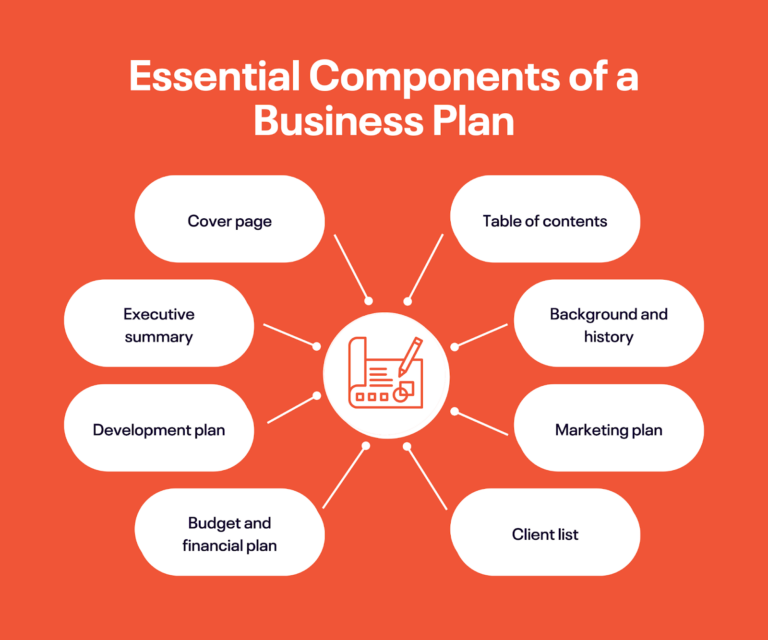Are you passionate about creating memorable experiences and have a knack for organization and creativity? If so, starting your own event planning company could be the perfect venture for you. In this guide, we will walk you through the essential steps on how to start your own event planning company successfully. From establishing your niche and creating a business plan to marketing your services and building a strong network, we will cover everything you need to know to turn your passion for event planning into a thriving business. Let’s dive into the exciting world of event management and discover how you can launch your own event planning company today!
Understanding the Event Planning Industry
When considering how to start your own event planning company, it’s essential to understand the dynamics of the event planning industry. Event planning involves coordinating and managing various aspects of an event to ensure its success.
The Role of Event Planners
Event planners play a crucial role in bringing together all the elements of an event, including venue selection, catering, entertainment, and décor. They act as liaisons between clients and vendors, ensuring that the event meets the client’s expectations.
Trends in Event Planning
In the current year, event planning has seen a shift towards experiential events that engage attendees on a deeper level. Personalization and technology integration have become key trends in creating memorable event experiences.

Market Research and Identifying Your Niche
Market research is crucial when starting your own event planning company. Conducting thorough research helps you understand the industry landscape, identify trends, and pinpoint gaps in the market. By analyzing data on event planning industry growth statistics in the current year, and consumer preferences, you can develop a strategic business plan.
Understanding Market Trends
Stay updated on the latest market trends in event planning. Look for emerging themes like virtual events, sustainable practices, and experiential marketing. Adapting to current trends can set you apart from competitors and attract a diverse clientele.
Identifying Your Niche
Define your specialty within the event planning industry to carve out a niche. Whether you focus on corporate events, weddings, or nonprofit galas, positioning yourself as an expert in a specific area can help you attract target clients effectively.
- Corporate Events
- Weddings and Celebrations
- Nonprofit and Fundraising Events
Creating a Business Plan for Your Event Planning Company
When starting your own event planning company, a comprehensive business plan is essential for success. Your business plan should outline your company’s goals, target market, services offered, marketing strategy, and financial projections.
Setting Your Goals
Define what you want to achieve with your event planning company. Whether it’s becoming a top planner in your region or specializing in corporate events, establish clear and achievable goals. Setting specific, measurable, achievable, relevant, and time-bound (SMART) goals can guide your business growth.
Identifying Your Target Market
Research and identify your target market. Determine the demographics, preferences, and needs of your potential clients. Knowing your target market allows you to tailor your services and marketing efforts effectively. Understanding your target audience can help you offer personalized event planning solutions.
Legal Requirements and Setting Up Your Business
When starting your own event planning company, it is essential to understand the legal requirements involved in setting up your business. This process can vary depending on your location, so it’s important to research the specific regulations that apply to you.
Business Structure
One of the first decisions to make is choosing the right business structure for your event planning company. Common options include sole proprietorship, partnership, limited liability company (LLC), or corporation. Each structure has different legal and tax implications, so it’s crucial to select the most suitable one for your business needs.
Registration and Licenses
After deciding on the business structure, you will need to register your company with the appropriate authorities and obtain any necessary licenses or permits to operate legally. This may include a business license, tax ID number, and permits for specific event planning services.
Make sure to check with your local government for the exact requirements applicable in your area for event planning companies before proceeding.
Contracts and Insurance
Creating clear and detailed contracts with your clients is crucial to protect both parties’ interests. Additionally, obtaining liability insurance for your event planning business can provide financial protection in case of unforeseen incidents during events.
Building Your Team and Establishing Partnerships
When starting your own event planning company, assembling a competent and reliable team is crucial to success. Establishing partnerships with vendors, venues, and other service providers is essential for offering a diverse range of services.
Recruitment and Team Building
In building your team, look for individuals with creativity, organization skills, and attention to detail. Assign roles based on strengths to ensure a well-rounded team.Effective communication is key.
Fostering Relationships with Partners
Establishing partnerships with reliable vendors and venues is crucial. Cultivate these relationships through open communication and mutually beneficial agreements.
- Regularly communicate with partners to ensure smooth collaboration.
- Offer incentives or loyalty programs to maintain strong partnerships.
Developing Your Brand and Marketing Strategy
Building a strong brand is crucial for the success of your event planning company. Begin by defining your unique selling proposition and target audience. Create a memorable logo, color scheme, and tagline that reflects your company’s identity.
Crafting Your Brand Identity
Design a professional logo that resonates with your target market. Use consistent colors and fonts across all marketing materials to build brand recognition.
Develop a brand voice that reflects your company’s values and personality. This will help differentiate your business from competitors.
Marketing Your Event Planning Services
Utilize social media platforms to showcase your expertise and engage with potential clients. Create informative blog posts and share event planning tips to establish credibility.
- Collaborate with influencers in the event industry to expand your reach.
- Attend networking events and trade shows to promote your services and build connections.
Managing Finances and Pricing Your Services
When starting your event planning company, managing finances and pricing your services effectively is crucial for long-term success. It’s essential to create a detailed budget that encompasses all expenses involved in running your business.
Setting Your Service Prices Strategically
Consider the market rates and your target audience while setting prices for your event planning services. Researching competitors’ pricing strategies can help you determine a competitive yet profitable pricing structure.
Tracking Expenses and Revenue Streams
Keep track of all expenses related to your business operations and monitor revenue streams regularly to ensure financial stability. Implementing accounting software can streamline this process and provide valuable insights for business growth.
- Regularly review and adjust your pricing strategy based on financial performance.
- Consider offering package deals or discounts to attract new clients while maintaining profitability.
Executing Successful Events
When it comes to how to start your own event planning company, executing successful events is crucial. Utilize the latest trends and strategies to ensure your events stand out in the competitive market.
Utilize Digital Marketing Tactics
Embrace social media platforms to promote your events effectively. Engage with your audience through creative campaigns and interactive content to generate buzz.
Implement SEO strategies in your event promotion to reach a wider audience organically.
Enhance Attendee Experience
Focus on creating memorable experiences for attendees through personalized touches and innovative concepts.
- Offer customized event services tailored to your clients’ needs.
- Provide unique entertainment options to keep attendees engaged.
Continuous Learning and Growth in the Industry
Continuous learning is crucial in the event planning industry to stay updated with the latest trends and technologies. Industry knowledge is key to providing top-notch services to clients and staying ahead of the competition.
Importance of Professional Development
Engaging in workshops, seminars, and online courses can enhance skill sets and broaden industry knowledge. Continuous learning ensures you are equipped to handle various event scenarios efficiently.
Networking and Collaboration
Building a strong network within the industry can lead to collaborations and partnerships. Networking fosters growth opportunities and opens doors to new clients and projects.
- Attend industry events
- Join event planning associations
- Participate in online forums
Frequently Asked Questions
-
- What are the first steps to launching my own event planning company?
- The first steps to launching your own event planning company include conducting market research, creating a business plan, identifying your target market, and registering your business.
-
- Do I need any specific qualifications to start an event planning company?
- While formal qualifications are not always required, having experience in event planning, hospitality, marketing, or a related field can be beneficial. Additionally, certifications or courses in event planning can help you build skills in the industry.
-
- How can I attract clients to my event planning company?
- You can attract clients to your event planning company by networking, offering competitive pricing, showcasing your portfolio, providing excellent customer service, and leveraging social media and other marketing strategies.
-
- What are some key components of a successful event planning company?
- Key components of a successful event planning company include attention to detail, strong organizational skills, creativity, effective communication, problem-solving abilities, and the ability to work well under pressure.
-
- How can I stand out in the competitive event planning industry?
- To stand out in the competitive event planning industry, differentiate your services by offering unique event experiences, specializing in a niche market, providing exceptional customer service, staying updated on industry trends, and building strong relationships with clients and vendors.
Final Thoughts: Launching Your Own Event Planning Company
Starting your own event planning company can be an exciting and rewarding venture. By following the step-by-step guide provided in this blog, you’ll be well-equipped to turn your passion for events into a successful business. Remember to conduct thorough market research, create a solid business plan, build a strong network of vendors, and always prioritize excellent customer service.
As you embark on this entrepreneurial journey, stay organized, stay creative, and stay dedicated to providing unforgettable experiences for your clients. With persistence and hard work, you can establish a reputable event planning company that stands out in the industry.
So, go ahead and take that first step towards realizing your dream of owning and operating your very own event planning company. The possibilities are endless, and success awaits!



